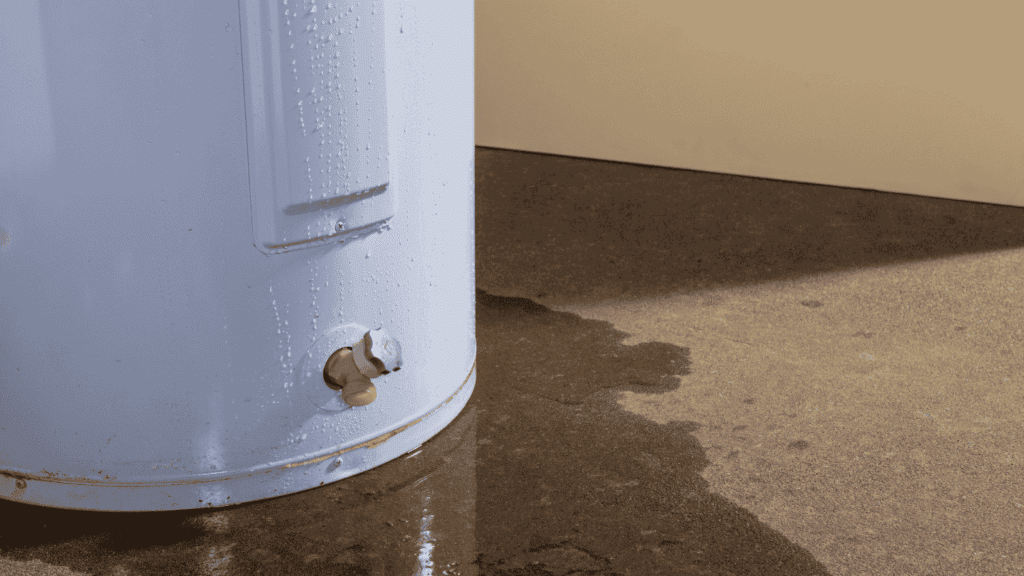Electric vs. Gas water heaters both perform wonderfully for Santa Rosa homes, but the right pick usually comes down to your necessity, budget, and home configuration. Electric water heaters rely on electricity to heat the water and can accommodate most homes with basic wiring. Gas water heaters burn fuel and typically heat water more rapidly, which is great for large families with high demand. Initial expenses, operating expenses and even how simple they are to install can vary depending on what the energy availability is in your region. Choosing the right one is about following safety guidelines and what suits your lifestyle. To assist you in your decision, the bulk of the post will highlight the key points that are most relevant to Santa Rosa homes.
Key Takeaways
- To compare electric and gas water heaters, consider the upfront costs, installation, and long-term operational expenses, including energy rates and maintenance, all of which differ depending on Santa Rosa’s local market.
- Ultimately, their efficiency and performance play a major role — including recovery rate, temperature consistency and appropriateness for various household sizes. All of these considerations will help you make sure your water heater can keep up with your daily demand.
- Safety and compliance are key, so check local permit processes, venting requirements for gas models, and safety standards for both in addition to manufacturer warranties and maintenance that promotes long-term reliability.
- Environmental considerations, such as carbon footprint and energy source sustainability, need to be explored, particularly given local regulations and incentives aimed at minimizing environmental impact and promoting renewable energy.
- Given electrification trends and infrastructure upgrades impacting home heating choices, homeowners should weigh the long term-proofing potential of their decision, grid resilience, and even impacts on resale.
- Taking advantage of local rebates, financing and utility company energy efficiency programs can further offset initial and ongoing costs, helping you to make an informed choice that is both economically and environmentally sound.
The Santa Rosa Water Heater Showdown
Deciding whether to go electric or gas for your water heater is ultimately a matter of costs, efficiency, and what works best for your home. Each has its own advantages and compromises. The table below compares features, price and possible savings for both options.
Feature | Electric | Gas |
Average Price | €400–€700 | €450–€850 |
Install Fee | €180–€350 | €280–€630 |
Lifespan | 10–15 years | 8–12 years |
Efficiency | Up to 98% | 80–85% |
Recovery Rate | Slower | Fast |
Monthly Cost (avg) | €28–€45 | €18–€32 |
Maintenance | Low | Medium–High |
Main Risk | Electrical fault | Carbon monoxide, gas leak |
Support | Widely available | Widely available |
Upfront Cost
Upfront expenses for a new water heater in Santa Rosa vary by model, however electric ones tend to be cheaper to purchase, at €400–€700, with gas models retailing for €450–€850.
Install fees are less for electric types as well, since they don’t need vent pipes or gas lines. Gas models might have additional needs, such as venting, which can begin to accumulate. Certain homes might be required to enhance their wiring or gas lines, which adds additional expense. If you’d like to spread out the payments, lots of retailers and local programs provide financing plans, allowing you to pay monthly.
Operating Expense
For electric water heaters, it’s more per month to run, €28–€45, as electricity rates in Santa Rosa tend to be higher than gas. Gas heaters can be less, at 18–32 EUR, but gas prices can fluctuate more from season to season. Electric units, with up to 98% efficiency, convert nearly all energy into heat, whereas gas units expel some energy through venting. There are sometimes utility rebates for energy saving models, which does help counteract the higher running costs.
Performance
Gas water heaters heat water rapidly and rebound quickly after heavy usage, rendering them suitable for households with high hot water demands. Electric heaters have slow recovery and are maybe not a good choice for a big family. Temperature steadiness, the electric models are excellent at holding hot well, while the gas units vary. User reviews frequently mention electric heaters being quiet and simple to use, with gas types receiving accolades for taming large needs.
Lifespan
Electric water heaters last roughly 10–15 years, and gas models run 8–12 years. Good care — flushing the tank, checking the anode — helps both last longer. Warranties vary from 6 to 12 years, with longer coverage frequently indicating better construction. Yearly inspections, particularly for gas variants, are essential for safety and longevity.
Safety Profile
Electric heaters are safe if wired correctly. Gas heaters pose dangers such as leaks or carbon monoxide and therefore require vents and regular inspections. Local code might require periodic safety inspection. Be sure to adhere to the manufacturer’s maintenance instructions.
Navigating Local Installation
Opting for electric versus gas water heaters implies sorting through a number of local installation processes. Each option comes with particular permit, space, and safety requirements — especially in Santa Rosa. Best of all, homeowners gain peace of mind by understanding the process, working with trusted contractors, and securing proper permits for a safe, dependable installation.
Permit Process
Permits are necessary prior to installing a water heater in Santa Rosa. For either electric or gas models, the city typically requires a plumbing or mechanical permit. Gas water heaters can require additional documentation because of fuel lines, venting, and fire safety regulations. This takes anywhere from a few days to a couple of weeks, depending on how busy that local office is. Homeowners have to supply model specs, site diagrams, and occasionally proof of licensed contractors. Local codes might add additional requirements, such as seismic bracing for earthquake safety or special venting for gas units. Turning a blind eye to these regulations can result in fines or expensive re-work later on.
Space Needs
First, survey the location where you intend to install your new water heater. Approximate your room, height and access measurements. Gas water heaters are often larger and require additional room for tanks, vent pipes, and gas lines. Electric units are typically slender and can fit into tight corners or closets. Just consider how convenient it will be to access the heater for future repair. Certain homes have zoning restrictions so you should check for limits on where water heaters can be, such as not in sleeping areas or near exits.
Venting Rules
For gas water heaters, venting is crucial. They need to vent exhaust outside for fire and health concerns. That implies that you need either a flue pipe or direct-vent. Depending on the type of vent, they can restrict placement of the heater. Additional ductwork might be required, particularly in older houses or cozy areas. Local building codes impose specific regulations on vent size, type, and placement. Double-checking these details with a licensed pro helps prevent major headaches down the road.
Long-Term Ownership Costs
Long-term ownership costs. Ongoing costs—energy consumption, upkeep, and fixes—define the true long-term footprint. Below, a comparison table shows cost differences between electric and gas water heaters over a 10-year period, assuming a mid-sized household and global average energy rates:
Water Heater Type | Initial Cost | Energy Cost (10 yrs) | Maintenance (10 yrs) | Repairs (10 yrs) | Total (10 yrs) |
Electric | $450 | $2,100 | $600 | $350 | $3,500 |
Gas | $650 | $1,750 | $900 | $500 | $3,800 |
Electric versions survive 10–15 years and are 98% efficient, which means they lose less heat and utilize energy more effectively than their gas counterparts, which settle in at around 80–85%. Gas heaters may be cheaper to operate per kWh, but price volatility in gas markets means that bills can increase more quickly than electricity in many regions. Around 20% of an average home’s energy budget is heating water, so these small efficiency gains add up over time. If you lower your water temperature by 5°C (10°F), you could trim between 3–5% from your monthly bill, no matter what system you use.
Maintenance
- Routine Checklist: Annual system flush to remove sediment; check heating element or burner; check anode rod; test temperature / pressure relief valve; check for leaks and corrosion.
- Scheduling: Plan yearly inspections, especially for electric units’ wiring and gas lines’ safety. Periodic inspections detect issues before they become critical and prevent failures. Gas heaters require additional care for venting and combustion testing. Electric units need less hands-on attention but yearly electrical inspections are a necessity. Local plumbers or HVAC techs usually provide fixed-price maintenance contracts customized for each kind, and most towns have trusted guys to do it.
Repairs
Repair costs vary. Electric water heaters have smaller repair bills, approximately $35 annually, as components such as thermostats and heating elements are inexpensive and simple to exchange. Gas models run closer to $50 annually, as burner repairs, venting and pilot lights add complexity. Electric heaters can suffer from heating element burnout, while gas units may experience thermocouple or ignition problems. Either can leak from tanks or fittings. Parts for electric heaters tend to be quicker to find and fit, whereas parts for gas heaters might require a longer search. Warranty coverage is different but most major brands provide 6–12 years for tanks and 1–5 years on parts.

Your Environmental Footprint
Electric vs. Gas water heaters have a lot to say about your home’s environmental footprint. It really depends on your energy sources, your emissions, and your local policies that influence your possibilities for living cleaner.
- Electric heat pumps consume less energy and reduce emissions, particularly when the electricity is renewable.
- Gas and oil burning for heating constitute about 10 percent of California’s emissions, with higher percentages in colder areas.
- California’s power grid is getting cleaner — 60% renewables by 2030 — so electric water heaters are only becoming a better pick.
- The size of your water heater tank matters: picking the right size means less wasted energy.
- Cities such as Santa Rosa have policies and programs in place to assist residents in reducing their carbon footprint via rebates and renewable energy.
Carbon Emissions
Electric and gas water heaters are very different in terms of emissions. Gas units combust fossil fuels onsite, emitting CO2 and other contaminants at the point of use. Electric models, particularly heat pump water heaters, generate no on-site emissions. They’re only as impactful as the cleanliness of the grid.
In places like California where renewable energy is growing, the emissions from electric water heaters are still declining. By 2030, most of the grid’s electricity may be solar, wind and hydropower. That in turn means electric heat pumps will have a far smaller carbon footprint than gas ones. Santa Rosa even has local programs that support swapping to electric heating systems, and many cities now provide options to offset emissions via community solar or green energy purchasing.
Energy Source
Santa Rosa’s electricity is derived from a combination of renewables, natural gas and imported power, whereas gas heaters depend on natural gas, a non-renewable resource with a variable supply and cost.
The electric grid is becoming more reliable, with outages decreasing and increased investment in clean sources. This shift matters because as the grid gets cleaner, the advantage of using electric water heaters increases. For future decisions, it’s worth keeping an eye on how local and state energy policies evolve. Santa Rosa has followed other cities in opting for renewables, so electric heat pumps are a safe bet for ongoing performance and sustainability.
Unlocking Local Savings
Heating water can account for close to 20% of a home’s budget, so these savings count. In Santa Rosa, local programs and rebates can make a big difference when choosing an electric or gas water heater. The price for operating a water heater varies based on electricity and natural gas rates. If your home relies heavily on hydro electricity, electric heaters can be the more affordable and environmentally friendly choice because they operate on cleaner energy.
Gas water heaters, however, have higher recovery rates—roughly 30–40 gallons per hour versus electric’s 20–22. Electric heaters convert significantly more of the energy they consume into heat, 90–95%, compared to 60–70% for gas models. These variations indicate that local power options and utility pricing should guide your decision.
Local rebates
Many utility companies offer rebates for buying energy-efficient water heaters. PG&E and Sonoma Clean Power both have rebates for electric heat pumps and high-efficiency gas models. Some programs provide up to €400 for switching to electric heat pump heaters. Always check the utility’s website to see what’s available.
Financing options
Some utilities partner with lenders to offer low-interest loans or payment plans for purchasing and installing new water heaters. These programs can help reduce upfront costs, making energy-efficient models more accessible to homeowners.
Energy efficiency programs
Utility companies may also offer energy audits or free home assessments. A technician will review your current setup and recommend upgrades. Some programs offer discounts on insulation, smart thermostats, or timers that help further cut costs.
Local resources
The City of Santa Rosa and state programs often provide guides and helplines to help residents choose the right water heater. Your local hardware store and online tools like the ENERGY STAR website allow you to compare models using the Uniform Energy Factor (UEF) rating so you can select the best option for your budget.
Tank size matters, too. Choose a size that fits your family, water consumption habits, and available space. Stay on top of maintenance — annual flushing and vent inspections can extend a water heater’s lifespan to 8–15 years.
Conclusion
To choose the best water heater for your Santa Rosa home, begin with your specific needs. Electric heaters offer silent operation and safe installation. Gas units heat water quickly and are ideal for high-demand households. Local rebates and regulations can help reduce overall expenses for both types. Initial purchase price and long-term operating costs both play a role, so review your numbers and think ahead. Your hot water usage, space limitations, and eco-conscious goals all factor in. Each option offers distinct advantages — both for today and years to come.
Need help evaluating your options? Contact local professionals or visit trusted directories. Smart planning now prevents cold surprises later.
Frequently Asked Questions
1. What are the main differences between electric and gas water heaters?
Electric heaters use electricity to heat water, while gas models use natural gas or propane. Electric units are easier to install and maintain. Gas units typically heat water more quickly and may have lower operating costs, depending on local energy rates.
2. Which water heater is more energy efficient?
Electric water heaters are typically more energy efficient, converting nearly all their input energy into heat. However, gas water heaters can provide hot water faster. Local utility prices often determine which is more cost-effective.
3. How do installation costs compare in Santa Rosa?
Electric water heaters generally cost less to install because they don’t need venting or gas lines. Gas water heaters may have higher initial installation fees but could lead to savings in monthly utility bills.
4. What are the environmental impacts of each type?
Electric water heaters, especially when powered by renewable energy, tend to have a lower environmental impact. Gas water heaters emit carbon dioxide and other pollutants due to combustion.
5. Are rebates or incentives available for water heaters in Santa Rosa?
Yes. Santa Rosa residents may qualify for local or state rebates — particularly for energy-efficient models. Check with your utility or city programs for current details.
6. Which water heater lasts longer?
Both electric and gas water heaters typically last 10–15 years. Regular maintenance is essential to maximize their lifespan.
7. Is one type better for future home upgrades?
Electric water heaters integrate more easily with solar panels and smart home systems, making them a forward-thinking option for homeowners planning to modernize.
Get Reliable Water Heater Service in Santa Rosa — Fast, Honest, and Local Help Is Just a Call Away
Don’t let a faulty water heater disrupt your comfort another day. Whether you’re dealing with cold showers, inconsistent water temps, or a unit that’s completely shut down, the team at Yorkshire Plumbing & Drain Services is here to help. We provide fast, affordable, and honest water heater repair and installation services throughout Santa Rosa and nearby areas. With nearly a decade of hands-on experience, we know exactly how to restore your hot water and peace of mind.
Need help now? Call or message us today to schedule your no-cost estimate. We’re proud to offer same-day service when possible and are always ready for urgent jobs. Visit our Contact Page or give us a call — our local, family-owned team is standing by to get your hot water flowing again.
Disclaimer
The information provided on this website is for general informational and educational purposes only and is not intended as professional plumbing or construction advice. You should consult with a licensed plumber or qualified contractor for guidance specific to your home or situation. Do not rely solely on the content of this site to make decisions about plumbing repairs, installations, or maintenance. While we strive to keep the information current and accurate, it may not reflect the most recent industry standards or code requirements. Yorkshire Plumbing & Drain Services disclaims all liability for any actions taken or not taken based on the content of this site, to the fullest extent permitted by law.







